Related Research Articles
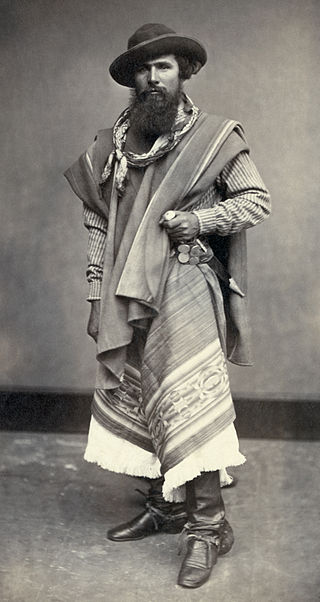
A gaucho or gaúcho is a skilled horseman, reputed to be brave and unruly. The figure of the gaucho is a folk symbol of Argentina, Uruguay, Rio Grande do Sul in Brazil, the southern part of Bolivia, and the south of Chilean Patagonia. Gauchos became greatly admired and renowned in legend, folklore, and literature and became an important part of their regional cultural tradition. Beginning late in the 19th century, after the heyday of the gauchos, they were celebrated by South American writers.

Robert Michels was a German-born Italian sociologist who contributed to elite theory by describing the political behavior of intellectual elites.
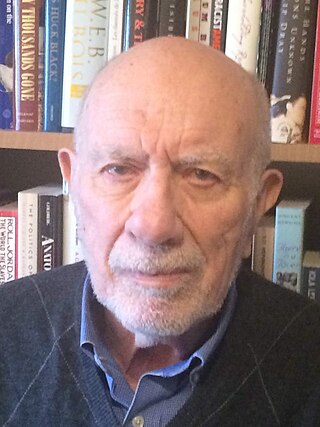
Robert Paul Wolff is an American political philosopher and professor emeritus at the University of Massachusetts Amherst.

Philip Quincy Wright was an American political scientist based at the University of Chicago known for his pioneering work and expertise in international law, international relations, and security studies. He headed the Causes of War project at the University of Chicago, which resulted in the prominent 1942 multi-volume book A Study of War.
Status inconsistency is a situation where an individual's social positions have both positive and negative influences on their social status. For example, a teacher may have a positive societal image which increases their status but may earn little money, which simultaneously decreases their status.

The American Sociological Review is a bi-monthly peer-reviewed academic journal covering all aspects of sociology. It is published by SAGE Publications on behalf of the American Sociological Association. It was established in 1936. It is along with American Journal of Sociology considered one of the top journals in sociology.
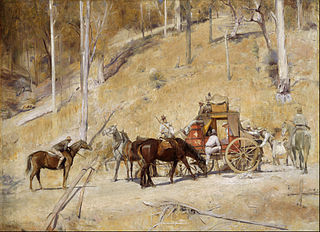
Social banditry or social crime is a form of social resistance involving behavior that by law is illegal but is supported by wider "oppressed" society as moral and acceptable. The term "social bandit" was invented by the Marxist historian Eric Hobsbawm and introduced in his books Primitive Rebels (1959) and Bandits (1969). Hobsbawm characterized social banditry as a primitive form of class struggle and resistance in pre-industrial and frontier societies. Social banditry is a widespread phenomenon that has occurred in many societies throughout recorded history, and forms of social banditry still exist, as evidenced by piracy and organized crime syndicates. Later, social scientists have also discussed the term's applicability to more modern forms of crime, like street gangs and the economy associated with the trade in illegal drugs.

Invented traditions are cultural practices that are presented or perceived as traditional, arising from the people starting in the distant past, but which are relatively recent and often even consciously invented by identifiable historical actors. The concept was highlighted in the 1983 book The Invention of Tradition, edited by Eric Hobsbawm and Terence Ranger. Hobsbawm's introduction argues that many "traditions" which "appear or claim to be old are often quite recent in origin and sometimes invented." This "invention" is distinguished from "starting" or "initiating" a tradition that does not then claim to be old. The phenomenon is particularly clear in the modern development of the nation and of nationalism, creating a national identity promoting national unity, and legitimising certain institutions or cultural practices.

Eric John Ernest Hobsbawm was a British historian of the rise of industrial capitalism, socialism and nationalism. His best-known works include his tetralogy about what he called the "long 19th century" and the "short 20th century", and an edited volume that introduced the influential idea of "invented traditions". A life-long Marxist, his socio-political convictions influenced the character of his work.

Pitirim Alexandrovich Sorokin was a Russian American sociologist and political activist, who contributed to the social cycle theory.
Historical determinism is the belief that events in history are entirely determined or constrained by various prior forces and, therefore, in a certain sense, inevitable. It is philosophical view of determinism applied to the process or direction by which history unfolds. Historical determinism places the cause of the event behind it.
The Origins of American Social Science is a 1991 book by Dorothy Ross on the early history of social science in the United States.
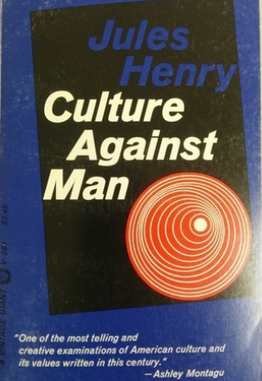
Culture Against Man is a 1963 book-length ethnography by anthropologist Jules Henry of his native United States culture. The book is presented in three parts: American life and its institutions, discussion on child-rearing, and discussion on nursing homes.
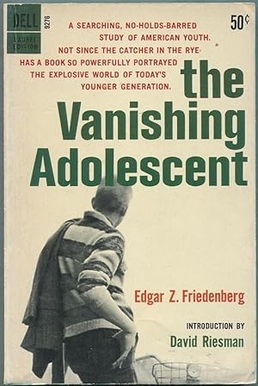
The Vanishing Adolescent is a 1959 book-length essay by Edgar Z. Friedenberg that describes changes in American youth's sociological experience of adolescence. The volume was reprinted ten times and translated into multiple languages.

The Transformation of the School: Progressivism in American Education, 1876–1957 is a history of the American Progressive Education movement written by historian Lawrence Cremin and published by Alfred A. Knopf in 1961.
Maria Cammarata, was a prominent female leader of the Fascio dei lavoratori in Piana dei Greci, part of the Fasci Siciliani movement. The role of women in the Fasci Siciliani was substantial, but is regularly overlooked in historical accounts.
Walter Korpi is a Swedish sociologist.
American Immigration Policy: A Reappraisal is a 1950 book edited by William S. Bernard, Carolyn Zeleny, and Henry Miller. It was published by Harper & Bros under the sponsorship of the National Committee on Immigration Policy. The book was the subject of reviews in several academic journals.
Man and Culture: An Evaluation of the Work of Malinowski is a 1957 book dedicated to the life and work of Polish anthropologist Bronisław Malinowski, edited by Raymond Firth and published by Humanities Press International.
Statistics of Deadly Quarrels is a 1960 book by English mathematician and physicist Lewis Fry Richardson 11 October 1881 - 30 September 1953 published by Boxwood Press. The book is a mathematical and social science study on the origins of war; topics that informed much of Richardson's research throughout his life.
References
- Slatta, Richard (2004), "Eric J. Hobsbawm's Social Bandit: A Critique and Revision", A Contracorriente, 1 (2): 22–30
Reviews
- Raglan (1959). "Review of Primitive Rebels". Man. 59: 144–145. ISSN 0025-1496. JSTOR 2796221.
- Carr, Raymond (1959). "Review of Primitive Rebels". The Economic History Review . 12 (2): 348–350. doi:10.2307/2599319. ISSN 0013-0117. JSTOR 2599319.
- Carr, E. H. (1960). "Review of Primitive Rebels; The Crowd in the French Revolution". The British Journal of Sociology. 11 (1): 92–93. doi:10.2307/587051. ISSN 0007-1315. JSTOR 587051.
- Coser, Lewis A. (1960). "Review of Social Bandits and Primitive Rebels: Studies in Archaic Forms of Social Movements in the 19th and 20th Centuries". American Sociological Review. 25 (6): 988–989. doi:10.2307/2090015. ISSN 0003-1224. JSTOR 2090015.
- Cowley, John C. (1967). "Review of Primitive Rebels: Studies in Archaic Forms of Social Movement in the Nineteenth and Twentieth Centuries". Science & Society . 31 (3): 365–367. ISSN 0036-8237. JSTOR 40401294.
- D., H. (1960). "Review of Primitive Rebels. (Formes élémentaires de la rébellion)". Archives de sociologie des religions. 5 (9): 189–190. ISSN 0003-9659. JSTOR 41239739.
- Dubief, Henri (1961). "Review of Primitive Rebels. — Studies in archaic forms of social movement in the 19th and 20th centuries". Revue Historique. 225 (2): 483–487. ISSN 0035-3264. JSTOR 40949415.
- Graña, César (1964). "Review of Primitive Rebels: Studies in Archaic Forms of Social Movement in the 19th and 20th Centuries". American Sociological Review. 29 (5): 761–762. doi:10.2307/2091432. ISSN 0003-1224. JSTOR 2091432.
- Hearder, H. (1961). "Review of Primitive Rebels". The English Historical Review. 76 (298): 167. ISSN 0013-8266. JSTOR 557139.
- Helleiner, Karl F. (1960). "Review of Primitive Rebels: Studies in Archaic Forms of Social Movement in the 19th and 20th Centuries". The Canadian Journal of Economics and Political Science. 26 (4): 660. doi:10.2307/138952. ISSN 0315-4890. JSTOR 138952.
- James, Rita (1960). "Review of Social Bandits and Primitive Rebels: Studies in Archaic Forms of Social Movement in the Nineteenth and Twentieth Centuries". American Journal of Sociology . 66 (1): 97–98. doi:10.1086/222830. ISSN 0002-9602. JSTOR 2773229.
- Pin, E. (1959). "Review of Primitive Rebels, Studies in Archaic Forms of Social Movement in the 19th and 20th Centuries". Gregorianum. 40 (4): 818. ISSN 0017-4114. JSTOR 23571641.
- Pitt-Rivers, Julian (1961). "Review of Social Bandits and Primitive Rebels: Studies in Archaic Forms of Social Movement in the 19th and 20th Centuries". American Anthropologist. 63 (4): 855–856. doi: 10.1525/aa.1961.63.4.02a00270 . ISSN 0002-7294. JSTOR 666690.
- Redlich, Fritz (1960). "Review of Primitive Rebels, Studies in Archaic Froms of Social Movement in the 19th and 20th Centuries". Vierteljahrschrift für Sozial- und Wirtschaftsgeschichte. 47 (3): 416. ISSN 0042-5699. JSTOR 20728441.
- S., M. F. (1959). "Review of Primitive Rebels - Studies in Archaic Forms of Social Movement in the 19th and 20th Centuries". Il Politico. 24 (3): 559–560. ISSN 0032-325X. JSTOR 43208958.
- Stearns, Peter N. (1964). "Review of Primitive Rebels: Studies in Archaic Forms of Social Movement in the Nineteenth and Twentieth Centuries". The Journal of Modern History . 36 (1): 82–83. doi:10.1086/239286. ISSN 0022-2801. JSTOR 1874476.
- Tank, Pinar (2001). "Review of Primitive Rebels or Revolutionary Modernizers? The Kurdish National Movement in Turkey by Paul White". Journal of Peace Research. 38 (5): 652. ISSN 0022-3433. JSTOR 424798.
- Williams, David (1959). "Review of Primitive Rebels". History . 44 (152): 278–279. ISSN 0018-2648. JSTOR 24403689.
- Worsley, Peter (1960). "The Revolt of the Inarticulate". Past & Present. 17 (17): 87–93. doi:10.1093/past/17.1.87. ISSN 0031-2746. JSTOR 649788.